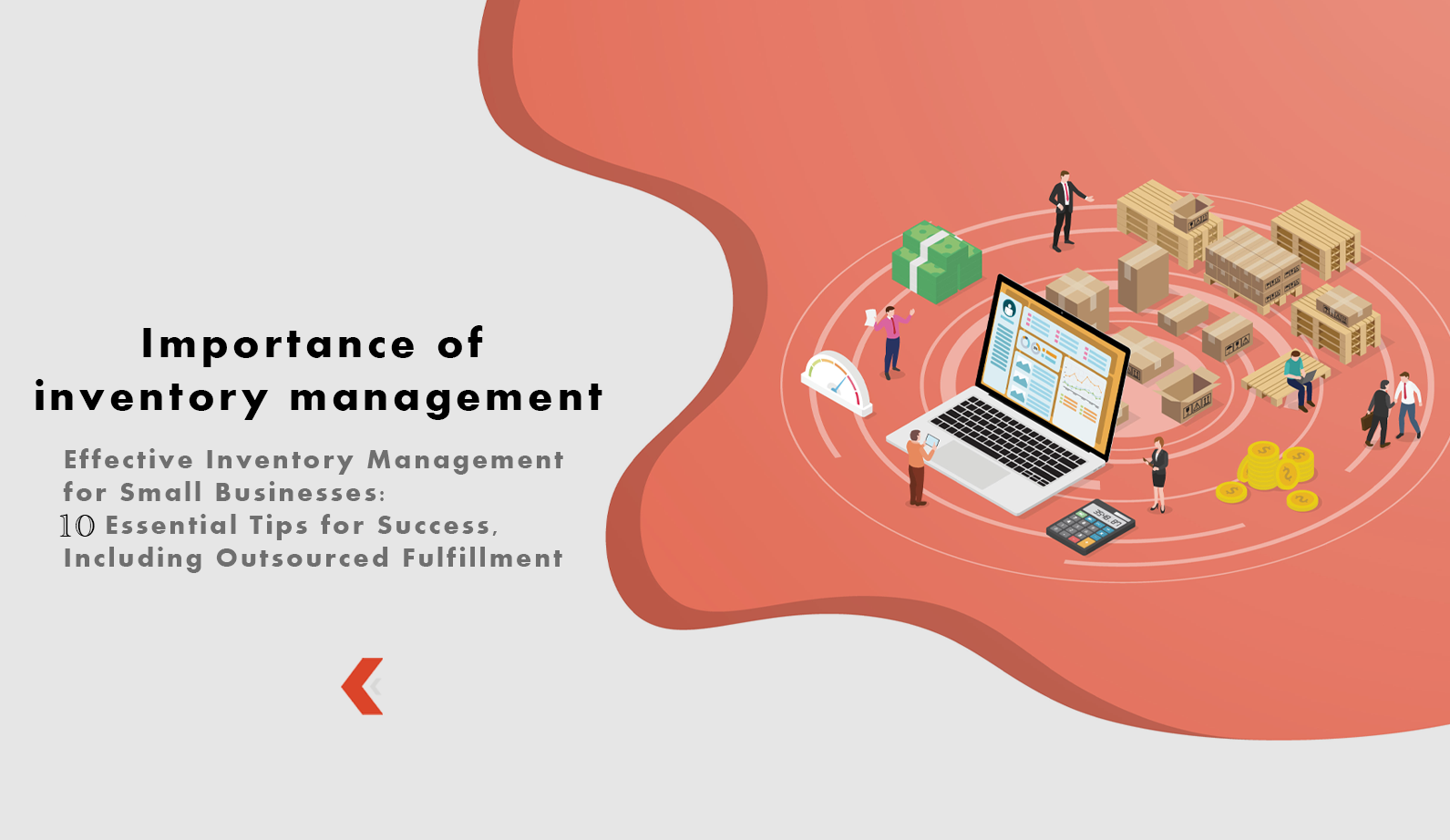Effective Inventory Management for Small Businesses
10 Essential Tips for Success, Including Outsourced Fulfillment
Introduction:
Inventory management plays a critical role in the success of any small business. Properly managing your inventory ensures that you have the right products in stock, reduces costs associated with excess inventory or stockouts, and ultimately enhances customer satisfaction. In this article, we will explore the importance of inventory management for small businesses and provide ten essential tips to help you effectively manage your inventory. Furthermore, we will highlight the advantages of outsourcing fulfillment as a top tip to streamline your inventory management processes.
1. Understand Your Inventory Needs:
To effectively manage your inventory, start by analyzing your sales history, market trends, and customer preferences. This data will help you determine which products are in demand, allowing you to stock the right items and optimize your inventory levels.
2. Categorize Your Inventory:
Segmenting your inventory into categories based on factors such as popularity, seasonality, or perishability will help you prioritize and manage it more efficiently. This categorization enables you to allocate resources appropriately and make informed decisions about restocking and promotions.
3. Adopt Inventory Management Software:
Investing in reliable inventory management software can significantly enhance your inventory management processes. Such software enables you to automate tasks, track stock levels, generate real-time reports, and forecast demand. This data-driven approach will help you make informed decisions, prevent stockouts, and reduce overstocking.
4. Set Reorder Points and Lead Times:
Determining reorder points and lead times is crucial to prevent stockouts and maintain optimal inventory levels. Reorder points indicate when it's time to restock, while lead times account for the time it takes to receive new inventory. Consider variables like supplier reliability, delivery times, and customer demand to set appropriate levels for both.
5. Embrace Just-in-Time (JIT) Inventory Management:
JIT inventory management focuses on receiving inventory just in time to meet customer demand. By minimizing excess inventory, you can reduce storage costs and the risk of obsolete stock. However, be cautious about potential supply chain disruptions and maintain good relationships with reliable suppliers to ensure timely deliveries.
6. Implement FIFO (First-In, First-Out) Method:
To avoid inventory spoilage or obsolescence, follow the FIFO method. This approach ensures that the oldest inventory is sold or used first, minimizing waste. Regularly rotate your stock and conduct audits to identify any expired or slow-moving items that may need special attention.
7. Streamline Order Processing:
Efficient order processing directly impacts your inventory management. Automate your order fulfillment process to minimize errors, reduce handling time, and increase overall efficiency. Utilize technology solutions like barcode scanning and order management systems to streamline the workflow.
8. Establish Vendor Relationships:
Develop strong relationships with reliable vendors and negotiate favorable terms. Maintaining clear communication channels will help you stay informed about product availability, lead times, and potential supply chain issues. Strong vendor partnerships can ensure a steady supply of inventory and enable you to respond quickly to changing customer demands.
9. Monitor and Analyze Key Performance Indicators (KPIs):
Keep a close eye on inventory-related KPIs, such as inventory turnover rate, carrying costs, and stock accuracy. Analyzing these metrics will help you identify inefficiencies, optimize your inventory management strategies, and make data-driven decisions to drive business growth.
10. Outsource Fulfillment for Efficiency:
One top tip for effective inventory management is to consider outsourcing fulfillment operations. Partnering with a reliable third-party fulfillment provider can alleviate the burden of warehousing, picking, packing, and shipping processes. This allows you to focus on core business activities while benefiting from their expertise, infrastructure, and scalable solutions. Outsourcing fulfillment can provide cost savings, improved order accuracy, faster shipping times, and enhanced customer satisfaction.
Conclusion:
Implementing effective inventory management practices is essential for small businesses seeking sustainable growth. By understanding your inventory needs, utilizing technology, and adopting proven strategies such as JIT, FIFO, and outsourcing fulfillment, you can optimize your inventory management processes. Follow the ten tips provided in this article, and you'll be on your way to achieving streamlined operations, reduced costs, and increased customer satisfaction. Remember, a well-managed inventory is the backbone of a successful business.

